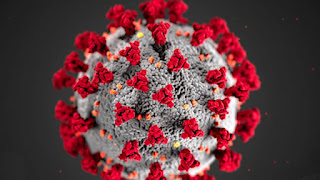WASH & COVID-19
Dear Friends and Partners.
Each year, March 22 marks World Water Day, a day dedicated globally to acknowledge the importance of water and focusing on issues surrounding access to clean water around the world. Water is not only essential for life, but it also provides a host of health benefits.
This March 22, 2021, Maboshe Memorial Centre (MMC) celebrated this year World Water Day online due to new social norms to curb the Covid-19 pandemic. The World Water Day celebrates water and raises awareness of the global water crisis, and a core focus is to support the Sustainable Development Goal (SDG) number six - water and sanitation for all by 2030.
Access to clean water and sanitation is necessary and it is at the heart of SDG6 Water and Sanitation. Smart and digital technologies can be helpful and essential to saving lives. Enhancing access to water system at large either multiple water systems or point of use (POU) handwashing stations along with WASH kits can make water more available. Taking into account the importance to accelerate access to clean water, the use of nonconventional water (NCW) resources could be beneficial for water and sanitation when made available where innovative technologies such as air to water may have essential functions.
Access to safe water and sanitation is particularly important in this time of the COVID-19 pandemic, since the spread of the virus can be mitigated by good hygiene practices.
The theme this year is valuing water. The value of water is much more than its price - water has enormous and complex value for our households, food, culture, health, education, economics, and the integrity of our natural environment.
If we overlook any of these values, we risk mismanaging this finite, irreplaceable resource. SDG 6 is to ensure water and sanitation for all. Without a comprehensive understanding of water's true, multidimensional value, we will be unable to safeguard this critical resource for the benefit of everyone.
Zambia is blessed with abundant water resources, the country is experiencing an alarming increase in demand for water supply in recent years. Many seem to take this natural resource for granted, while often having the misconception that supplying clean water would be cheap and easy.
Currently, Zambia's water supply is inadequate, deteriorating in quality and low flow of surface water. The greed for money is causing water pollution and quality deterioration. As a result, water has reached its carrying capacity, where water has reached its limits in balancing the pollution and negative treatment it receives. Many rural people use a source of drinking water contaminated with feces, putting them at risk of contracting cholera, dysentery, typhoid and polio.
We need to address COVID-19 reinforces with access to clean water for health, and food and nutrition security. Reliable Water, Sanitation and Hygiene (WASH) facilities are essential to containing the spread of the virus. However, many rural people in Zambia still lack access to safely managed drinking water and sanitation services affecting people's health and access to safely produced food in the country. Currently more than: -
7 million (41%) people in Zambia don't have access to safe water
12.6 million (74%) people in Zambia don't have access to adequate sanitation
5,793 Zambian's die every year from inadequate water, sanitation and hygiene
As a Community Based Organisation, we recognize the value of clean water for healing and health maintenance and fully support making water protection and conservation a national wide priority. Water increases our energy by assisting our blood in transporting oxygen and essential nutrients to our cells. We recognize the value of clean water for healing and health maintenance, and fully support making water protection and conservation a national wide priority.
Hand washing is the first line for infection prevention. Hence by improving in water supply and sanitation we will be able to fight or prevention the spread of diseases such as covid19, trachoma and many more diseases.
MABOSHE MEMORIAL CENTRE (MMC) FOCUS ON FOUR AREAS: -
RAISE PUBLIC AWARENESS ABOUT HAND HYGIENE. Clean water and soap are essential to preventing infections, and the benefits of proper handwashing should be emphasized in communication campaigns. Both households and institutions must be targeted with messages that are developed in line with new insights from behavioural change research. It is also important to combat misinformation and fake news on COVID-19.
STRENGTHEN INFECTION PREVENTION AND CONTROL. Infection prevention and control (IPC) measures can limit human-to-human transmission and protect individuals from exposure to Covid-19. For households, it is important to have access to handwashing infrastructure as well as basic hand hygiene products such as soap and alcohol-based hand rubs. Another top priority is to ensure that health care facilities, schools, detention centres and other institutions have uninterrupted access to safe and sufficient water as well as basic sanitation.
GUARANTEE THAT EVERYONE HAS ACCESS TO A MINIMUM LEVEL OF WATER AND SANITATION. During the pandemic people should not be cut off from these services regardless of whether they are temporarily unable to pay their bills. Prioritize access for people who are living in vulnerable conditions such as health care facilities, shelters, refugee camps or detention centres.
ENSURE THE CONTINUITY AND SAFETY OF WATER AND SANITATION SERVICES. Make sure that there are handwashing facilities in, for example, health care facilities, schools and public spaces. Public toilets must remain open, with proper hand washing facilities (including soap and disinfectants) so that people are not forced to defecate in the open.
Issued by the Maboshe Memorial Centre (MMC)
Cell #: +260979997382, +260975077808 and +260954655071
Email: mmcoffice8@gmail.com
Facebook page: - https://www.facebook.com/maboshememorialc
Twitter: -https://twitter.com/mmc_office
Linkedin: https://www.linkedin.com/company/11503066/admin/




Comments
Post a Comment